- French in France
- DALF C1 & C2
- TCF for Quebec
- Online Exercises
- DELF Scolaire/Junior

DELF A1: Writing a Postcard or letter in french about your vacation

Normal 0 false false false MicrosoftInternetExplorer4
How do you write a postcard or letter in french telling someone, such as a friend, about your vacation? This is a common question to be found on many french exam or test paper. Well this article a step by step guide on how to write a postcard or letter telling someone about your vacation.
In the Production Ecrite section of your french exam such as the DELF A1 exam, you will be required to write a message, email or letter consisting of 40 to 50 words. So lets begin!
How to plan your postcard or letter in french
It is possible to plan and practice various response to the possible exercises before the date of your exam. In general, when you are writing a postcard there are certain information you may include, such as:
- How You went
- Where you went (montagne, plage, campagne, ville…)
- When / with whom you went
- Where or with whom are you staying? (à l’hôtel, chez l’habitant, dans un camping, dans un gîte…) Normal 0 false false false MicrosoftInternetExplorer4
- What you saw or visit/did or are doing, etc
- Are you enjoying yourself?
- What is the weather and or the place like
- When are you coming back?
- Sign your name
While it is not necessary to provide all of the above information, It is important to note that DELF exam instructions, sometimes select from the list above and specifically ask you to include such information. As a result, it is important to practice different response which will include different combination of the suggestions above. The ones highlighted in red are the basics and should almost always be included in your postcard.
Writing your postcard or letter in french
Sample exercise: writing a postcard or letter in french about your vacation.
Exercise 1 15 points
Vous êtes en vacances à Nice. Vous envoyez une petite carte postale a un ami à Paris. Vous lui parlez de temps, de vous activités et vous lui donnez votre date de retour. (40 à 50 mots).
Sample letter in french about your vacation :
Bonjour Jean,
(Word count = 49)
Sample Exercise for You!
Salut______________,
Je suis en vacances à _____________ pour _________________. C’est une ville très ______________. je visite_________________. c’est________________. Il fait______________ . Je rentrerai chez-moi _____________________.
________________
Evaluation:
- Greetings : Bonjour Jean ( We could also use: “Salut Jean Normal 0 false false false MicrosoftInternetExplorer4 ” “ Cher Jean” . Use “Chère” only if it is a female)
- Where you are and for how long: Je suis en vacances à Nice pour cinq jours
- What you did or are doing: Hier, j’ai jou é au volley sur la plage . Maintenant, je prends le déjeuner dans un petit café.
- Are you enjoying yourself? Super!
- What is the weather and or the place like: Il fait très beau, avec beaucoup de soleil.
- When are you coming back?: Je rentrerai chez-moi samedi prochain.
- Farewells: Bises ( We could also use: “ Normal 0 false false false MicrosoftInternetExplorer4 A bientôt” “or “a samedi !” or “a la semaine prochaine !” or “au revoir”)
- Sign your name: Janet
There is agreement of adjective and verb: un petit café. Plus I have used three tenses:
- Le présent: je prends, Il fait ,
- le passé composé: j’ai jou é
- le futur: Je rentrerai .
I have included the specific information that they had asked for. I have also stayed within the word limit.
Remember to stick to the word limit and follow the instructions that are given. If they want you to provide any specific information such as when you are coming back, the weather, what you visited etc this must be included in your postcard. You will lose points if this is not done.
Check for Errors
Remember to read carefully through your text. Check to ensure that plural words have a plural ending. Make sure that there is agreement between adjectives and the nouns they describe (such as une belle église , un beau chateau ). Check all to ensure that all verbs are in the right tense and that the endings match the subject (such as Je vais for the present but Je suis allé for the past ). Check to make sure you have followed the instructions and fully used all the structures that you have learnt during your study.
LEAVE A REPLY Cancel reply
Save my name, email, and website in this browser for the next time I comment.
- Privacy Policy
- Terms of use
- Contactez-nous

Lettres et langue française
- Cours de français
- Vocabulaire
- Expressions
- Productions écrites
- +Fiches de lecture
- +Questionnaires
Raconter ses vacances d'été en français
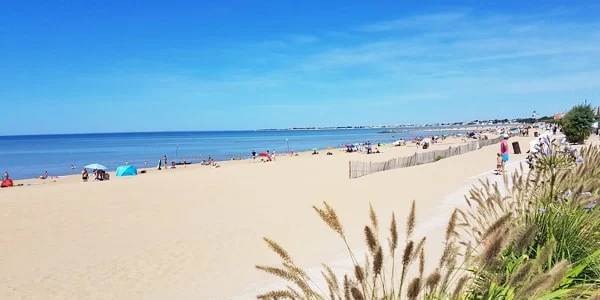
Phrases en français pour apprendre à décrire et à raconter ses vacances d'été :
Description de la plage en français
Dialogue entre deux amis sur les vacances
Les bases en français pour voyager
Phrases en français pour les vacances d'été
Articles similaires

PARLER DE SES VACANCES EN FRANÇAIS

🎁 30% de réduction sur mes cours
Abonne-toi à ma newsletter et reçois 30% de réduction sur mes cours.
Laisse ton prénom et ton email ci-dessous ⬇️
Dans cette vidéo, je vous raconte mes vacances en français. L’objectif est de vous montrer comment je parle de mes vacances pour que vous puissiez vous en inspirer et faire de même. Raconter ses vacances est un excellent exercice pour améliorer son français.
Testez votre compréhension de la vidéo. Répondez au quiz sur mes vacances en Bulgarie !
- Elle vit déjà en Bulgarie, elle est venue en voiture.
- Nous sommes arrivées en même temps
- Nous avons parlé du programme de notre séjour de trois jours à Sofia.
- Nous avons commandé des plats.
- Nous avons commandé une boisson.
- J'ai raconté ma journée à mon amie.
- En autostop
- Un monastère
- Le château de l'ancienne reine de Roumanie
- Un monument de l'époque communiste
- Une forteresse du Moyen Âge
- Dîner dans des restaurants
- Manger des glaces
- Du poisson pêché sur l'île
- Un yaourt bulgare
- Le plovdiv, une spécialité bulgare
- Un cocktail bulgare
Salut à toutes et tous. J’espère que vous allez bien et que votre apprentissage du français se passe bien.
Alors aujourd’hui, je vais vous raconter mes vacances en français. L’objectif de cette vidéo, c’est que vous appreniez des nouvelles expressions, des nouvelles phrases, du nouveau vocabulaire pour pouvoir vous aussi raconter vos vacances en français. N’hésitez pas à mettre en commentaire de la vidéo les mots ou les expressions que vous ne comprenez pas pour que je puisse vous les expliquer. Vous pourrez aussi aller sur www.hellofrench.com pour trouver le transcript de la vidéo, donc le texte de la vidéo, le vocabulaire associé à la vidéo, donc, je vais vous expliquer tous les mots utiles pour raconter ses vacances en français. Et aussi, vous pourrez trouver un quiz pour tester votre compréhension sur justement ce que je vais vous raconter sur mes vacances. L’année dernière, je suis partie en vacances en Bulgarie. Je suis partie avec une amie. Nous avons fait un road trip dans tout le pays en voiture. Je suis partie de Paris , donc j’ai pris l’avion à Paris pour aller à Sofia et mon amie décollait de Bruxelles.
Je suis arrivée la première à l’aéroport de Sofia. Une fois que j’ai récupéré ma valise , j’ai été acheter un ticket de métro pour aller dans le centre ville . Une fois au centre de Sofia, je me suis aidée de Google Maps pour trouver l’hôtel que nous avions réservé. À l’hôtel, j’ai été à la réception et j’ai discuté avec la personne à l’accueil qui m’a donné les clés de la chambre et qui m’a aussi donné un plan de la ville.
Nous avons un peu discuté, elle m’a parlé des sites à visiter , de bars , de restaurants qui pouvaient être sympa. J’ai profité de la journée toute seule pour me promener, pour commencer à visiter la ville en attendant mon amie. Le soir, quand elle m’a rejoint, nous avons été dans un restaurant que j’avais réservé durant la journée. Nous avons commencé par prendre un cocktail et j’ai pu lui raconter mes découvertes sur la ville. Nous avons passé trois jours à Sofia à visiter les différents sites culturels : des musées, des églises, les parcs et à nous balader.
Nous avons aussi goûté à de nombreuses spécialités locales . Au bout des trois jours, nous avons ensuite loué une voiture pour commencer à visiter le pays et surtout nous rendre à la mer . Sur le trajet pour aller à la mer, nous nous sommes arrêtées pour visiter différents villages, différentes villes ou encore des monuments .
Par exemple, nous nous sommes arrêtées dans une ville qui s’appelle Veliko Tarnovo pour visiter une forteresse du Moyen Âge. Nous avons aussi visité en haut d’une colline un monument qui datait de l’époque communiste qui ressemblait à une énorme soucoupe volante . Une fois arrivées à la mer, nous nous sommes arrêtées dans la ville de Balchik.
C’est une ville très touristique, car il y a un château, le château de l’ancienne reine de Roumanie. Elle allait passer ses vacances à la mer dans cette ville. Le château est entouré d’un énorme jardin botanique et aussi bien les jardins que le château donnent sur la plage et la mer. C’est vraiment très beau. Ensuite, nous avons été dans une station balnéaire pendant quelques jours. L’objectif était vraiment de profiter de la plage. Donc nous avons surtout bronzé , toujours avec de la crème solaire et un parasol .
Le soir, nous faisions des promenades en bord de mer et nous dînions dans des restaurants en prenant des cocktails ou mangeant des glaces sur le bord de la mer. Nous sommes ensuite allées sur une île , ou plutôt une presqu’île. C’est une ville vraiment très très touristique , mais une fois qu’on a trouvé des petites rues au calme, c’était vraiment très joli. Donc, nous passions une soirée sur cette presqu’île où nous avons dîné dans un restaurant qui surplombait la mer.
C’était vraiment très beau et surtout, nous avons pu goûter notre premier et fameux yaourt bulgare. C’était vraiment délicieux. Ensuite, nous avons repris la voiture et nous avons été pour deux jours dans la deuxième plus grande ville du pays, Plovdiv. Il n’y avait pas grand chose à visiter, mais nous avons beaucoup aimé l’ambiance qui était très festive. Il y avait beaucoup de jeunes, beaucoup de petits bars, de petits restaurants en terrasse. Ensuite, nous avons repris la voiture pour retourner à Sofia pour rendre la voiture à l’agence de location.
Nous avons ensuite profité des quelques heures qu’il nous restait pour retourner dans les endroits que nous avions beaucoup aimé avant de retourner à l’aéroport pour prendre nos vols .
J’espère que cette vidéo vous a plu, que vous avez pu apprendre du nouveau vocabulaire sur les vacances. De nouveaux mots. N’hésitez pas à liker cette vidéo si elle vous a plu et à suivre la chaîne pour voir d’autres vidéos. À très bientôt et bonnes vacances !
🇫🇷 Ce cours va débloquer ta compréhension orale du français
👉 Grâce à des dialogues, je vais t’apprendre à comprendre les Français, même quand ils parlent vite.
🚀 50 dialogues du quotidien pour booster ta compréhension du français
✅ Comprends les Français, même quand ils parlent rapidement. ✅ Parle avec les francophones en toute confiance. ✅ Améliore durablement ton français avec une méthode basée sur des dialogues du quotidien.

Share this post
Articles qui pourraient t'intéresser.

11 mots d’argot sur l’argent en français
Lorsqu’on apprend à parler français, on réalise vite que les mots d’argot sont beaucoup utilisés par les francophones eux-mêmes. Encore plus quand il s’agit d’argent. Les mots d’argot sur l’argent sont à la base de beaucoup de conversations et vous

“Beauf” – Définition, prononciation en français
📖 Définition du mot “Beauf” Le mot “beauf” a deux sens. Il désigne le beau-frère de quelqu’un dans un langage très familier (c’est mon beauf = c’est mon beau-frère), et il désigne également quelqu’un qui n’est pas très distingué, qui

50 mots d’argot en français avec des exemples (maj 2023)
L’argot est une forme de langage familier et populaire utilisée par des groupes sociaux spécifiques en France. Il s’agit la plupart du temps de jeunes, mais ce n’est pas toujours le cas. On utilise souvent des mots ou des expressions
Vidéos qui pourraient t'intéresser

News in Slow French #9 – Controversies around French Education minister.
Amélie Oudéa-Castéra est la personne qu’on voit le plus dans les médias en France en ce moment ou presque. Depuis sa nomination, la nouvelle ministre de l’Éducation enchaîne les polémiques et les controverses. Bienvenue dans ce nouvel épisode de Learn

Our Love Story ❤️ Real French Conversation (FR/EN subtitles)

Kitchen vocabulary in French : 70 words (basic to advanced)
Transcription Tu n’as jamais entendu ces objets de la cuisine en français ? Une louche, un économe ou encore une bouilloire ? Alors, cette vidéo est faite pour toi. Bienvenue dans ma cuisine. Aujourd’hui, c’est une vidéo de vocabulaire en
🚀 200 000 personnes progressent à mes côtés

Parler de ses dernières vacances
Texte FLE et questions de compréhension, niveau intermédiaire (A2), sur le thème vacances et météo .
Pendant des vacances à Paris, la météo est très variable.

Bonjour et bienvenue sur podcastfrançaisfacile.com. Je vais vous lire aujourd’hui un texte intitulé « Parler de ses dernières vacances »Je vais lire ce texte trois fois, une fois à vitesse normale, une fois lentement et une dernière fois à vitesse normale. C’est parti.
VOCABULAIRE :
passer ses vacances – visiter un musée – se promener dans les rues – faire les magasins – visiter un château – profiter – écrire des cartes postales
Mes dernières vacances, je les ai passées à Paris. J’adore cette ville. J’ai visité le musée du Louvre, le musée d’Orsay, le musée Rodin. Je me suis promené dans les rues de Paris, j’ai fait les magasins. Je suis aussi allé passer une journée à Versailles pour visiter le château.
Malheureusement , ce jour-là, il ne faisait pas beau, il a plu le matin et l’après-midi, il y a eu un vent terrible. J’étais un peu déçu car j’aurais bien voulu passer un peu de temps dans les jardins.
Heureusement, le jour suivant, le ciel était bleu et j’ai pu profiter de mon dernier jour de vacances en France. Je suis allé boire un café en terrasse , j’ai mangé dans un bon petit restau et l’après-midi, j’ai écrit des cartes postales à tous mes amis.
J’espère bien pouvoir retourner en France très bientôt. Mais cette fois, il faut que j’aille dans le midi. Il paraît que c’est fantastique.
QUESTIONS :
- Il a visité quels musées ?
- Pourquoi est-ce qu’il est allé à Versailles ?
- Il a fait quel temps à Versailles ?
- Qu’est-ce qu’il a fait le dernier jour ?
- Il a visité le musée Rodin, le musée du Louvre et le musée d’Orsay.
- Pour visiter le château.
- Il a plu et il y a eu du vent.
- Il est allé boire un café en terrasse, il a mangé dans un restaurant et il a écrit des cartes postales.
VRAI – FAUX :
- À Versailles, il a plu seulement le matin.
- Il a bu un café en terrasse.
- Le dernier jour, il a écrit des cartes postales.
- Il n’a pas fait beau le dernier jour.
PROLONGEMENT :
- Est-ce que vous avez déjà voyagé à Paris ?
- Est-ce que vous avez déjà visité des châteaux ?
- Est-ce que vous aimez vous promener dans les rues ?
- Est-ce que vous envoyez des cartes postales à vos amis ?
Articles similaires
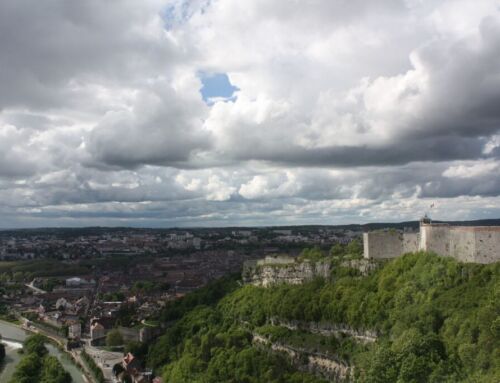
Besançon texte B2
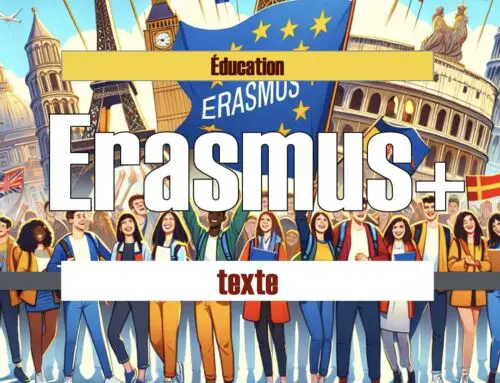
Christian Dior, l’élégance et le renouveau de la haute couture française
REQUEST A QUOTE
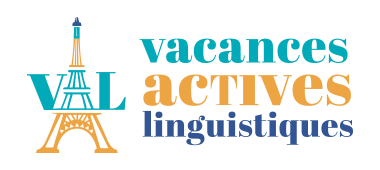
Telling your holidays in French
Drrriiiiiiing !!!
It is the start of the new school year, students and learners of French are back to lessons!
How to restart the brain gently? Telling your holidays in French is an excellent back to school exercise to keep your mind on vacation a little longer.
Vacances Actives gives you the right tips to make the start of the new school year a pleasant one that refreshes your French as a Foreign Language (FFL) skills and stimulates exchanges!
Recounting one’s holidays: a complete linguistic exercise
Holidays, a good subject to create an exchange and integrate.

At the start of the school year, the first lessons of the year can impress students and it is important to facilitate dialogue between them . Whether a learner is shy or not, speaking is never an easy exercise in a new group whose members you don’t know. And the task falls to the teacher to stimulate the pupils and to encourage them to speak. Recounting your holidays in French is an excellent “ice breaker” : in turn, or as part of a two-person dialogue, the pupils share their experience and describe their holiday destination. Travel, sport, leisure, geography: so many subjects that allow students and teachers to find common points and perfect topics of conversation to facilitate their integration.
A story that mobilizes a lot of knowledge in French
“En juillet, je partis à Nice et j’ai allé à la mer”. ( = with mistakes :“In July, I left for Nice and I went to the sea”. )
Coming back from vacation can be hard for the learner’s brain. We will not hold it against him, these mistakes are very common!
First of all, recounting one’s vacation requires using the concordance of times from the past. Here is an opportunity to work on the conjugation and use of the past tense, simple and imperfect past. This exercise is not suitable for all language levels, but it can be adapted with a simplified version, using only the past tense. Here is a good introduction to discover this grammatical tense, if it is on the program for the year.
Also, recounting one’s holidays is an opportunity to express one’s preferences, feelings and emotions . ‘I liked, I preferred, I loved, I regretted, I hated…” : so many personal formulas to testify to a moment or a pleasant or not pleasant activity. This exercise opens up many possibilities for discussion. And for those who have not had the chance to go on a trip, the exchange can be oriented towards the wish, the future desire to discover a destination, or to do a particular activity.

Describing one’s holidays: a wide range of vocabulary

The description exercise is an effective way to mobilize a lot of French vocabulary words . Many lexical fields can be used, depending on the activities and the destination in question. It is a good idea to provide students with vocabulary sheets to help them describe their vacation. The sea, the mountains, the countryside, sport, leisure, transport, accommodation, weather, geography, etc. are among the main themes that can be used for this exercise.
In particular, very dense vocabulary supports can be found on the site: https://www.lepointdufle.net/pseigner/lexique_vacances-fiches-pedagogiques.htm#h
Exercise materials to tell about one’s holidays in French
Orally: a set of questions relating to the holidays.
In pairs or in the form of a group forum, the exercise which consists of recounting one’s holidays can be easily set up with a set of questions . It is true that at the resumption of lessons, learners generally have difficulty finding their words and developing a speech in front of others. It is up to the teacher to guide them through a framework of dialogue:

- Did you go on vacation this summer?
- Where did you go?
- At what period? How long ?
- With whom did you go)?
- How did you spend your time? What activities? What visits have you made?
- Have you had any meetings? (a question open to several interpretations!)
- Did you speak French during the holidays?
- What do you plan to do for the next vacation?
If the speaking is still too timid and the students are not very verbose on the subject, then an ultimate exercise can help them. The idea is to ask them to identify which student in the group has had a vacation most like theirs ! As a result, the pupils question the others in the form of a game and discover a maximum of common points. A good way to untie tongues.
In writing: essay or travel diary
For higher French as a foreign Language (FFL) levels, it is interesting to work on written expression on this question. In writing, an essay for example, the story of the holidays can be developed further but the exercise will lose its interactive and playful side.
On the other hand, to tell their vacation, students can rely on their travel diary. This can be used as “summer homework”. The travel journal is a very effective activity for working on students’ written expression and creativity. We have devoted a generous article to it with tips and suggestions: Create your linguistic travel diary. Some teachers go so far as to organize contests within the class!

The postcard exercise
Writing a postcard is a tradition that is being lost… It is an opportunity to revive it and to suggest that the pupils tell their holidays in French in a reduced format. It only takes a few minutes for learners to address the postcard to the person of their choice. This approach is well suited to the first levels of FLE: it allows students to give a synthetic account of their adventures. Borrowing in the telegraphic style or with a more literary tone, they use a few well-chosen words to quickly describe the destination and give their impressions.
The teacher can play the game to the end by printing a nice photo in the appropriate format to illustrate the vacation destinations of his students, or provide a set of ready-to-use postcards!

Tell your holiday stories on Instagram !
Why not do this exercise on social media? Teachers, you can create an Instagram account dedicated to your class, and start the exercise. Students should choose and post a photo and then write a clear description. Destination, anecdotes, exciting visits… The end result: an aesthetic and complete picture illustrating the holidays for the whole FFL class, to show and share!

Summer peregrinations are an excellent topic of conversation and story to mobilize knowledge and develop French vocabulary.
The exercise can very well be applied when returning from a language study trip, where each of the learners will share an anecdote or an opinion on the trip made.
So many good ideas to encourage travel and learning French!
Anniversary: OUR top 7 language stay memories
Bordeaux travel diary: from dordogne to arcachon., visit france during the paris olympics in 2024, privacy overview.
Complete Guide to French Vacation ⛱
Learn the French vacation vocabulary + French to describe your holidays in France + Vacation dates and zones in France + tips form a French native.
Vacation, in French “les vacances” (always plural), is at the heart of the French culture.
With 5 weeks paid vacation for French employees, and a total of 16 weeks of vacation for French school students, France sure values her holidays.
1 – French Holiday Vocabulary
- bonnes vacances! = have a good holiday!
- bon voyage! = have a good trip!
- bonne route! = have a safe journey!
- les grandes vacances = school summer break
- partir en vacances = to go on holiday/vacation
- aller au soleil = to go under the sun
- aller à la mer = to go by the beach
- aller à la montagne = to go to the mountains (usually to ski, but maybe to hike)
- Faire ses valises = to pack
- Défaire ses valises = to unpack
- On est allés… We went… à l’hôtel – in a hotel dans un club de vacances – in a resort dans un camping – in a camping dans une auberge de jeunesse – in a youth hostel dans un gîte / une chambre d’hôte – in a B&B chez des amis – at some friend’s house.
- le départ – departure
- l’arrivée – arrival
- le trajet – the trip
- le voyage – the trip
- la douane – customs
- l’immigration – immigration
- la frontière – the border
- un passeport – passport
- un billet d’avion – plane ticket
- un ticket de train – train ticket
- une réservation – booking

2 – Expressing What Went Well or Poorly During Your Vacation in French
- On a vu… = we saw
- Le voyage/tout… s’est bien / mal passé = the trip/everything… went well / poorly
- La circulation était fluide / dense = traffic was fluid / dense
- L’avion/ le train était à l’heure / en retard = the plane / the train was on time / late
- La chambre (n’) était (pas) très confortable = the room was very comfortable (or not)
- La vue était superbe / moche (slang) = the view was great / ugly
- La nourriture était délicieuse / dégueulasse (slang) = the food was delicious / awful
- Il a fait beau / mauvais = the weather was nice / bad
- Il a fait (trop) chaud / froid = the temperature was (too) hot / cold
- Le musée était ouvert / fermé = the museum was open / close
- On a perdu nos valises = we (or someone else) lost our suitcases
- On a été volé = we were robbed
- J’ai été malade = I was sick
- Il y avait des grèves = there were strikes
- Le vol a été annulé = the flight was canceled
3 – Paid Vacation in France
The French are known to take a lot of vacations, especially if you compare them to the Americans! But is this “five weeks of paid vacation” myth really true?
Yes it is. According to Le Journal du Net, French employees take even more vacation time than that, with an average of 37 days per year, or 5.2 weeks (in 2012). There is quite a difference between French workers: a public office manager takes an average 7.4 weeks of paid vacation, versus a farm worker/ artisan who takes 4.6 weeks.
So who doesn’t take this much vacation in France? Self employed people… Shop owners, small businesses and startups – believe me, not everybody takes 5 weeks vacation in France!
However, it’s true that in general, the French really enjoy a lot of vacation time: don’t go to France in August and expect to do a lot of shopping! A lot of stores close in August – and actually in January as well, especially in smaller countryside towns.

An audio novel for all levels. Explore Paris with modern, lively and realistic dialogues
More Details & Audio Samples
4 – School Vacation and School Breaks Dates in France
French kids enjoy 16 weeks of vacation (+ all the long weekends and official holidays…)
The French school vacation is divided as follows:
- France’s Summer break: “les grandes vacances”, July and August, so 8 weeks total.
- France’s Fall vacation: “les vacances de la Toussaint”, mid October, 2 weeks.
- France’s Christmas break: “les vacances de Noël”, mid December, 2 weeks.
- France’s Winter vacation: “les vacances d’hiver”, zone dependant*, February, 2 weeks.
- France’s Spring break: “les vacances de printemps”, zone dependant*, April, 2 weeks.
5 – What is the French Vacation “Zone” System?
Since 1964, France is divided into “zones” to facilitate the departure of students for vacation : France is cut into three zones (A, B, C) and the vacation time spread over one month so that there is enough room for everybody in the ski stations! I am NOT kidding…
So now, every single French household with kids has to check out this map to know which zone they now belong to, and when the vacation for their kid is going to be. And forget about meeting your Parisians cousins for the vacation if you live in Brittany… you are not in the same zone, which means you won’t have the same vacation date.
So practical!

For more info and exact French vacation dates, go to the French School Vacation Government Site .
6 – Watch Out For Ticket Prices and Driving in France During School Vacation
Of course, as soon as you hit the vacation starting / ending dates, France is in a gridlock. We call them: “les journées noires” (black days) and you should not plan on driving during these days if you don’t want to be stuck in endless traffic-jams (“les embouteillages”, “les bouchons”).
Train and plane tickets, room prices, all goes up as well.
So it’s a good thing to know about the French school vacation dates before you plan your next trip to France!
7 – French Speaking Vacation Tip – Think Club Med!
Lots of French students want to practice their French during their vacation. It’s a good idea, however:
- you have to pick your location carefully (read my article about vacationing in France )
- you need to make sure you get people to talk to – it’s not always easy to strike up a French conversation with perfect strangers… This is why I recommend you check out my immersion at French Teacher’s house programs .
However, your family may not speak French, or share your enthusiasm to visit France over and over again… Or going to France maybe too far, too complicated… So why not try “Club Med”?
As a French organization, many people speak French there, and you’ll be surrounded by a lot of French guests. Even in Florida, or the Caribbeans…
Club med now has “family” clubs, which are kid friendly – although not everybody may agree on what is PC around kids! The evening shows may be viewed as “too risqué” for very conservative families, so be aware that with French speaking people, you’ll also get a bit of French culture, humor, attitude…

8 – How do You Say “How Was Your Vacation” in French?
This is more tricky than it sounds. First, you have to memorize that the French word for vacation is always plural: les vacances, mes vacances, des vacances… The verb and adjectives will also have to be plural to match “les vacances”.
Then, to ask “how was your vacation” (or rather how were your vacations in French…) we don’t use the same construction.
- In formal French, we say: “comment se sont passées tes/vos vacances”?
Or you can use a statement and turn it into an informal question:
- “Vos/tes vacances se sont bien passées?”
- Another way is to switch it around: “vous avez / tu as passé de bonnes vacances ?”
I suggest you pick one and learn it by heart to use it yourself, but you need to know the three formulas because they are very, very common in French.
Of course, one can get creative and say: “tes/vos vacances, c’était bien ?”. It’s much simpler, but less used in French!
9 – How do You Answer “My Vacation was…” in French?
Here again, you have to watch out to keep your answer in the plural.
Your answer usually “matches” the formality of the question, but it’s not set in stones.
- Mes vacances se sont (très) bien/mal passées – My vacation was (very) good/bad.
- J’ai passé de (très) bonnes / mauvaises vacances – I had a (very) good / bad vacation.
or, much easier:
- C’était super / nul – It was great / really bad.
10 – How to say Where You Went / Are Going on Vacation in French?
[ftimmersion_ad]
You’ll start by using “aller” or “partir”.
In the past, both form their passé-composé with “être” :
- Je suis allé(e), je suis parti(e) – I went, I left
- Nous sommes allé(e)s, nous sommes parti(e)s – we went, we left
In the future, we tend to use the near future construction:
- Je vais aller, je vais partir – I’m going to go, I’m going to leave
- Nous allons aller, nous allons partir – we’re going to go, we’re going to leave
Then, what follows get complicated… I’ll sum it up here, but read my articles to know more about the French prepositions of place and how to say the date in French .
- Use à + city, en + feminine country, au + masculine country, aux + plural country. Je suis allée à Paris, en France, au Japon, aux Bahamas.
- Use en + month Je vais aller en France en juillet.
Voilà, I hope this is helpful. To learn more about French vacation vocabulary, the best is to learn in context: I suggest you check out my “ Une Semaine à Paris ” and “ Une Semaine à Paimpol ” downloadable French audiobooks, featuring:
- A fun and reachable French story, full of useful everyday vocabulary and situations, and its English translation.
- A story recorded at 2 speeds: a bit slower than normal and street French (normal for the French and featuring modern pronunciation and glidings).
- A Q&A section to practice your French out loud and check your understanding of the story.
I post new articles every week, so make sure you subscribe to the French Today newsletter – or follow me on Facebook , Twitter and Pinterest .
Camille Chevalier-Karfis
Born and raised in Paris, I have been teaching today's French to adults for 25+ years in the US and France. Based on my students' goals and needs, I've created unique downloadable French audiobooks focussing on French like it's spoken today, for all levels. Come to Paimpol and enjoy an exclusive French immersion homestay with me in Brittany .
More Articles from Camille Chevalier-Karfis
You Might Also Enjoy...

More free lessons
- How to say I love you in French 20 ways to say I love you in French and 14 softer alternatives
- Talking about the weather Always a useful conversation icebreaker
- French food guide French food is brie-ond belief!
- French Numbers Made Easy The correct French number pronunciation from zero to one billion
- 30 ways to say yes in French In French it’s just a oui-bit different
- French clothes 150 French clothes names, English translation, audio recordings
- Ultimate French Time Guide How to ask and give the time in French
- Describing the body 100+ French body part names and fun videos featuring the Sims
- French jokes Bring a bit of laughter in your French studies
- French Conversation Starters For when you are feeling a bit shy in French
- A to Z French Vocabulary 150 really useful French vocabulary lists with English translations
I publish posts every week. Want to keep up to date with the new content? ✉️ Subscribe to my weekly newsletter
Recorded at 3 different speeds + Study Guide + Q&A + Full Transcript
Copyright - French Today 2024
- Privacy Policy
- Mentions Légales
- Affiliate Program
Can You Understand Today’s Spoken French?
It’s not just slang. The French everybody speaks in France today is NOT the overly enunciated, extremely formal French usually taught to foreigners.
TAKE YOUR FREE AUDIO TEST NOW

Compréhension orale B1, B2 : Les vacances d’été des Français
L’objectif de cet épisode est de travailler la compréhension orale du français dès le niveau B1 grâce à la transcription. Je parle à nouveau d’un sujet lié à la culture française: nos habitudes pendant les vacances d’été. Un épisode particulièrement utile si vous voulez vivre ou voyager en France!
Je vous explique :
- l’histoire des congés d’été
- les lieux préférés fréquentés par les Français: les régions visitées et les modes d’hébergement

Comment utiliser ce podcast pour améliorer votre français
Dans tous mes épisodes, j’utilise de nombreuses expressions idiomatiques et du vocabulaire avancé. Tout d’abord, écoutez. Puis lisez la transcription. Ensuite, consultez la fiche de vocabulaire. Enfin, faites vos propres notes avec les mots que vous voulez retenir.
Cela vous aidera à améliorer votre compréhension orale et écrite. Ainsi, vous vous préparez à écouter et lire des documents authentiques, natifs, tels que ceux utilisés aux examens .
Les bonus du podcast sur Patreon
Pour les membres Patreon , accédez à la fiche de grammaire avec des exercices (prononciation du conditionnel et pronom relatif « où ») et les idées de production écrite ou orale.
Les bonus de grammaire et vocabulaire des épisodes précédents sont disponibles gratuitement dans la zone VIP .
Vous aimez mon podcast? Vous souhaitez agir pour améliorer votre français? Rejoignez ma communauté Patreon !

Compréhension orale B1 B2 – Les vacances des Français (1ère partie)
Travaillez la compréhension orale en français dès le niveau b1.
Téléchargez la fiche de vocabulaire et la transcription. Si vous n’êtes pas encore membre, inscrivez-vous !
N’oubliez pas de vous abonner pour ne pas manquer les prochains épisodes et laissez un commentaire si vous aimez!
Spotify Apple Podcasts Google Podcasts
Vous aimez mon contenu? Vous voulez des bonus exclusifs? Aidez-moi à créer les meilleures ressources pour vous. Rejoignez ma communauté Patreon !
Écoutez les autres épisodes du podcast
Related Post

Comment utiliser des séries pour apprendre le français et connaître la culture

Améliore tes présentations orales en français: les 12 P
Discriminations et racisme en france: l’origine de la diversité.

Pourquoi tu dois savoir parler de cuisine française pour mieux apprendre le français
Pourquoi les français font-ils la grève, apprendre le français de façon indépendante, est-ce fait pour moi, leave a comment annuler la réponse.
Votre adresse e-mail ne sera pas publiée. Les champs obligatoires sont indiqués avec *
Enregistrer mon nom, mon e-mail et mon site dans le navigateur pour mon prochain commentaire.
Enjoy this blog? Please spread the word :)

Mes vacances en Bretagne

Télécharger
Texte + Quiz + Vocabulaire
- ⇄ Traduction
- ✎ Vocabulaire
Pour les vacances de février, ma femme et moi avons décidé de nous offrir un séjour d’une semaine en Bretagne.
Nous allons y aller avec toute la famille : nous deux, nos trois enfants et le chien. J’ai eu du mal à trouver des locations qui acceptent les animaux, mais j’ai fini par en trouver.
Voici donc notre programme : les trois premiers jours, nous allons visiter Quimper. Sur les conseils d’un ami, nous allons voir le tombeau de Saint Corentin dans la cathédrale. Puis, nous irons visiter le musée des beaux-arts. Ensuite, nous ferons un saut au Jardin de la Retraite situé dans le centre-ville. Un jardin connu pour ses nombreuses plantes exotiques inconnues et très belles.
Après Quimper, nous irons faire un saut dans la ville close de Concarneau. D’après ce qu’on nous a dit, c’est une cité fortifiée construite sur un îlot qui vaut vraiment le détour.
Pour terminer, nous avons réservé un hôtel à Bénodet devant la plage. Cette ville est une station balnéaire au cadre très agréable. J’espère que nous pourrons nous baigner, mais l’eau sera très froide en cette période de l’année. Je ne sais pas si nous aurons le courage d’aller dans l’eau.
Le reste du voyage n’est pas vraiment planifié. Nous allons improviser au fur et à mesure du séjour. Bien sûr, nous allons en profiter pour goûter aux spécialités locales : comme le Kouign-Amann, le caramel au beurre salé et les galettes bretonnes. Nous avons vraiment hâte de découvrir cette région de la France que nous ne connaissons pas.
For the February holydays, my wife and I have decided to go to Brittany for a week.
We are going to go with the whole family: the two of us, our three children and the dog. I had a hard time finding places to rent that accept animals, but I finally found some.
So here is our program: the first three days, we will visit Quimper. On the advice of a friend, we will see the tomb of Saint Corentin in the cathedral. Then, we will visit the museum of fine arts. Then, we will go to the Jardin de la Retraite located in the city center. A garden known for its many unknown and beautiful exotic plants.
After Quimper, we will go to the walled city of Concarneau. According to what we were told, it is a fortified city built on an islet which is really worth a visit.
Finally, we booked a hotel in Bénodet in front of the beach. This city is a seaside resort with a very pleasant setting. I hope we will be able to swim, but the water will be very cold at this time of the year. I don’t know if we will have the courage to go in the water.
The rest of the trip is not really planned. We will improvise as we go along. Of course, we will take the opportunity to taste the local specialties: like the Kouign-Amann, the salted butter caramel and the Breton cakes.
We are really looking forward to discovering this region of France that we do not know.
Pour les vacances… de février / de Noël / de Pacques / d’été.
Ma femme et moi / Mon mari et moi / Mes enfants et moi / Mes frères et moi / Mes sœurs et moi / Ma famille et moi.
J’ai eu du mal à trouver des locations… pas trop chères / libres / bien placées / avec un bon rapport qualité-prix / qui me plaisaient.
Sur les conseils… de mon frère / de ma sœur / de nos amis.
Nous allons voir… le musée / la bibliothèque / la plage / le château / l’exposition / le spectacle.
Cet endroit est connu… pour ses paysages magnifiques / pour ses nombreuses boutiques / pour ses nombreux restaurants / pour son quartier d’affaires / pour son architecture.
Puis, nous irons faire un saut… dans la forêt / à la montagne / à la campagne / en ville / chez nos amis / chez nos parents / chez nos enfants. J’espère que nous pourrons… profiter du beau temps / aller à la plage / faire de la randonnée / courir / rencontrer des locaux / voir les illuminations / voir le feu d’artifice / voir le carnaval / voir le défilé.
Le voyage n’est pas vraiment planifié / C’est un voyage organisé / Le voyage est parfaitement planifié.
Nous allons improviser / Nous n’allons rien laisser au hasard
Quiz de compréhension
Vérifiez votre compréhension du texte en répondant aux questions ci-dessous.
#1. Pour quelles vacances partent les personnages en Bretagne ?
Ils partent en Bretagne pour les vacances de février.
#2. Qui va en Bretagne ?
Toute la famille va en Bretagne.
#3. Combien de jours vont-ils visiter Quimper ?
Ils vont visiter Quimper pendant trois jours (3 jours).
#4. Que leur a conseillé de visiter un ami ?
Un ami leur a conseillé de visiter le tombeau de Saint Corentin.
#5. Pour quoi est connu le Jardin de la Retraite ?
Le Jardin de la Retraite est connu pour ses nombreuses plantes exotiques.
#6. Où est construite la ville close de Concarneau ?
La ville close de Concarneau est construite sur un îlot, sur une petite île.
#7. Qu’est-ce que Bénodet ?
Bénodet est une station balnéaire. C’est une ville près de la mer.
#8. Est-ce que la famille va se baigner ?
La famille n’est pas sûre de se baigner, car l’eau est très froide.
#9. Tout le voyage est-il planifié ?
Non, ils vont improviser au fur et à mesure du séjour. Ils n’ont pas tout prévu.
#10. Est-ce que la famille connaît bien la Bretagne ?
Non, ils ne connaissent pas la Bretagne. Ils ne connaissent pas cette région.
Améliorez votre français avec Anyfrench Premium
🔒 Ce contenu est réservé aux membres Premium. 🔒
Devenez Premium pour accédez au site complet pendant 1 an.
✅Tous les textes complets (audio, textes, traductions, quiz et PDF) ✅Textes exclusifs réservés aux membres Premium ✅ Formation "La France à la maison" offerte ✅ Bonus : Ressources authentiques de français
- International
- Schools directory
- Resources Jobs Schools directory News Search
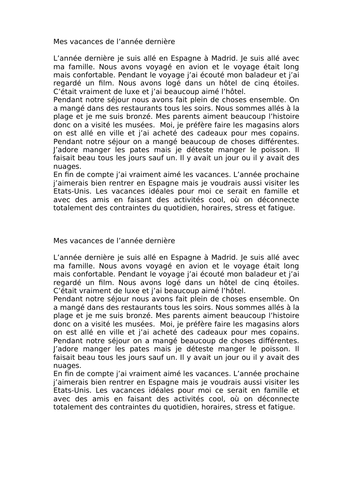
Mes vacances de l'année dernière - last years holiday
Subject: French
Age range: 14-16
Resource type: Lesson (complete)
Last updated
12 February 2021
- Share through email
- Share through twitter
- Share through linkedin
- Share through facebook
- Share through pinterest

Model essay on holidays in the past tense Could be used as a translation exercise Find the French for
Creative Commons "Attribution"
Your rating is required to reflect your happiness.
It's good to leave some feedback.
Something went wrong, please try again later.
This resource hasn't been reviewed yet
To ensure quality for our reviews, only customers who have downloaded this resource can review it
Report this resource to let us know if it violates our terms and conditions. Our customer service team will review your report and will be in touch.
Not quite what you were looking for? Search by keyword to find the right resource:

- TOP CATEGORIES
- AS and A Level
- University Degree
- International Baccalaureate
- Uncategorised
- 5 Star Essays
- Study Tools
- Study Guides
- Meet the Team
- Modern Foreign Languages
French past tense essay - Mes vacances
This is a preview of the whole essay

Document Details
- Author Type Student
- Word Count 445
- Page Count 1
- Subject Modern Foreign Languages
- Type of work Homework assignment
Related Essays

French Coursework: My Holiday - Mes Vacances

Mes Vacances - French coursework with teacher's comments.

Mes vacances.

Mes Vacances
Les vacances d'été
Les vacances d'été en France durent 6 semaines et ont habituellement lieu entre Juillet et Septembre. En France, le début des vacances est souligné par les soldes d'été.
Il faut savoir que les étudiants comme les travailleurs attendent ces vacances avec impatiente. La majorité des Français ne restent pas dans leur région durant les vacances d'été.
Le sud du pays, l'Italie ou l'Espagne sont notamment les destinations touristiques les plus prisées des vacanciers en raison du climat perpétuellement froid dans le nord du pays.
Toutefois, certaines personnes ne disposent pas d'un budget spécial pour financer ce type de détente. Ils préfèrent alors rester à la maison et profitent du temps libre pour visiter leurs familles ou se balader en ville.

Did you understand the text?
Please answer the following questions of understanding:
You are using an outdated browser. Please upgrade your browser or activate Google Chrome Frame to improve your experience.
50+ French Vacation Words and Phrases (With Audio)
Whether you enjoy the feel of seawater and hot sand or the crisp mountain air, there’s nothing like a relaxing vacation.
However you choose to vacation, wouldn’t you love to do it all in French?
Here are 50+ useful French vacation vocabulary words and phrases , with example sentences so you can use them correctly in context.
So grab that passport and let’s get started!
French Vacation Vocabulary for a Smooth Trip
Talking about vacation plans, vacation accommodation, modes of transport, vacation activities, tips to learn vacation vocabulary, drill flashcards before your trip, visualize the vocabulary, watch authentic french videos, start using the words in your own sentences, and one more thing....
Download: This blog post is available as a convenient and portable PDF that you can take anywhere. Click here to get a copy. (Download)
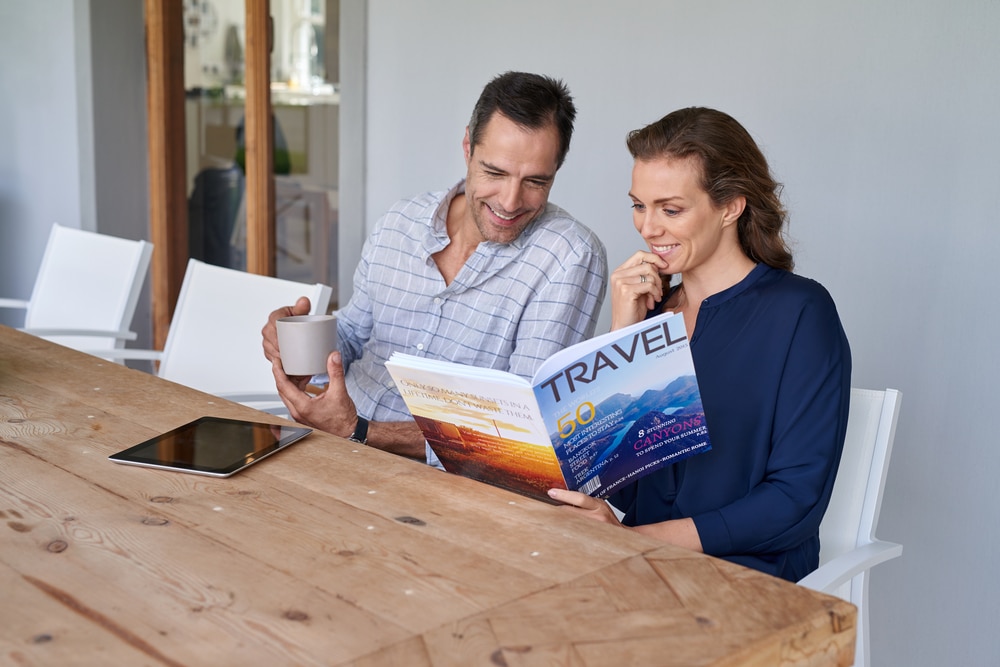
This topic will require you to get comfortable with some basic interrogatives in French .
Common questions and answers
- où ? (where?)
- quand ? (when?)
- avec qui ? (with whom?)
- Comment voyages-tu ? (How are you traveling?)
- Je vais au / à la… (I’m going to…)
- pendant (during)
Vacation seasons
- les vacances de Noël ( Christmas vacation )
- les vacances d’été ( summer vacation , also known as les grandes vacances )
- les vacances d’hiver ( winter vacation )
- les vacances de printemps ( spring vacation )
- les vacances de la Toussaint ( fall vacation ; All Saints)
Example sentences
Où vas-tu en vacances ? (Where are you going on vacation?)
Je vais à la plage / à la montagne / à l’étranger. (I’m going to the beach/to the mountains/overseas.)
Quand iras-tu en vacances ? (When will you go on vacation?)
Je voyagerai pendant les vacances d’été. (I will travel during the summer vacation.)
Avec qui allez-vous voyager / vas-tu voyager ? (Who are you going to travel with?)

Places people stay on vacation
- un hôtel (a hotel)
- une auberge de jeunesse (a youth hostel)
- un club de vacances (a resort)
- un camping (a camping ground)
- un appartement (an apartment)
- un gîte (a holiday home/cottage)
- une chambre d’hôtes (a bed and breakfast)
Phrases for making a reservation
- Je voudrais une chambre (I would like a room…)
- salle de bains (bathroom)
- pour une / deux / trois / quatre personnes (for one/two/three/four people)
- du… au… (from [date] to [date])
Je voudrais une chambre pour deux personnes avec salle de bains du 5 août au 12 août. (I would like a room for two with a bathroom from August 5 to August 12.)
Pour mes vacances, je vais loger dans un hôtel. (For my vacation I am going to stay in a hotel.)
Je logerai dans une auberge de jeunesse. (I will stay in a youth hostel.)
L’année dernière, j’ai logé dans un camping. (Last year, I stayed in a camping ground.)

Getting to your destination
- en avion (by plane)
- l’aéroport (airport)
- en bateau (by boat)
- en train (by train)
- la gare (the station)
- le billet (the ticket)
- aller-retour (round trip)
Getting around your vacation spot
- en métro (by subway)
- en bus (by bus)
- en taxi (by taxi)
- à pied (on foot)
Comment vas-tu en Belgique ? En avion ou en train ? (How are you going to Belgium? By plane or by train ?)
Où est l’aéroport, s’il vous plaît ? (Where is the airport, please?)
Je cherche la gare. (I am looking for the train station .)
À quelle heure est le départ de l’avion ? (What time does the plane leave?)
Combien coûte le billet pour Nice ? (How much does the ticket to Nice cost?)
Je voudrais un aller-retour pour le train qui va à Marseille. (I would like a return ticket on the train going to Marseille.)

This topic is a great opportunity to pick up common French nouns and verbs . There are hundreds of activities that you can add to your vocabulary list. Some common ones include:
- faire de la planche à voile (to windsurf)
- faire du lèche-vitrine (to go window-shopping )
- bronzer (to suntan)
- aller au restaurant (to go to the restaurant)
- nager (to swim)
- faire du ski (to ski)
- faire une randonnée (to go hiking)
- faire du vélo (to cycle)
- visiter des monuments / des musées (to visit monuments/museums)
- participer à une visite guidée (to join a guided tour)
Try to use this vocabulary with different tenses!
Aujourd’hui, je voudrais aller à la plage pour bronzer. (Today, I would like to go to the beach to suntan.)
Hier, je suis allé(e) faire du vélo en montagne. (Yesterday, I went cycling in the mountains.)
Demain, j’irai au restaurant avec mes amis. (Tomorrow, I will go to the restaurant with my friends.)

One of the best parts of going on a holiday in France is getting to eat out and sample food. So, food vocabulary should be in the cards. We’ll give you the basics for a vacation— for an in-depth guide to restaurant vocabulary in French, check out this article.
- le repas (the meal)
- le petit déjeuner (breakfast)
- le déjeuner (lunch)
- le dîner (dinner)
- la salle à manger (the dining room)
- le restaurant (restaurant)
- Qu’est-ce que vous recommandez aujourd’hui ? (What do you recommend today?)
- le plat du jour (today’s special)
- Je voudrais… (I would like…)
- L’addition, s’il vous plaît. (The check, please.)
À quelle heure est le petit déjeuner ? (What time is breakfast ?)
Comme dessert, je voudrais la crème caramel. (For dessert, I would like the crème caramel.)
Recommandez-vous le plat du jour ? (Do you recommend today’s special?)
Je voudrais des escargots. (I would like some snails.)
Make flashcards for the words above and go through them periodically before your trip. You don’t even need to carry around a stack of index cards—there are apps like Quizlet for creating flashcards online and even playing games to test yourself.
French vacation words tend to be highly visual, so consider making mind maps , or visual diagrams that represent the words you want to learn. There are many examples of mind map templates online.
You can also create a memory palace . The idea of this memorization device is to visualize a location—say, your childhood home—and populate it with the relevant vocabulary. For example, you could visualize a building and each hallway, room or object would be associated with a word you wish to remember.
It’s a great technique for visual learners to create context for seemingly isolated terms.
The best way to remember any new French vocabulary is to learn it in context. And one of the best ways to do that is to watch videos in French from French sources. You can easily find French TV shows and movies on streaming services like Netflix. If you prefer shorter videos, you can find French videos about all sorts of topics on YouTube.
FluentU is another way to hear French how it’s spoken in actual French-speaking regions. It’s a language learning program that uses authentic videos with interactive subtitles as the core of its lessons, along with active learning features like flashcards and quizzes.
The videos on FluentU are sorted by topic, so you can easily find media that’s related to travel, such as news clips about French vacation habits or video tours of French open-air hotels.
You’ll be using the words and phrases below with real French speakers throughout your vacation. So, why not start practicing now?
For example, don’t just learn the word nager (to swim). Start creating sentences, like:
Où est la plage ? J’aimerais nager cet après-midi. (Where is the beach? I would like to swim this afternoon.)
Savez-vous nager ? (Do you know how to swim?)
To ensure your own sentences actually make sense, you can use a grammar checker like Bon Patron .
Now that you’ve used all the tools and resources at your fingertips and you’ve prepared everything for your vacation, you’re ready to go.
Use your new vocabulary as often as you can and you’ll become good at communicating and recognizing repeated words.
Bonnes vacances ! (Have a good vacation!)
FluentU has a wide variety of great content, like interviews, documentary excerpts and web series, as you can see here:

FluentU brings native French videos with reach. With interactive captions, you can tap on any word to see an image, definition and useful examples.

For example, if you tap on the word "crois," you'll see this:

Practice and reinforce all the vocabulary you've learned in a given video with learn mode. Swipe left or right to see more examples for the word you’re learning, and play the mini-games found in our dynamic flashcards, like "fill in the blank."

All throughout, FluentU tracks the vocabulary that you’re learning and uses this information to give you a totally personalized experience. It gives you extra practice with difficult words—and reminds you when it’s time to review what you’ve learned.
Start using the FluentU website on your computer or tablet or, better yet, download the FluentU app from the iTunes or Google Play store. Click here to take advantage of our current sale! (Expires at the end of this month.)
Enter your e-mail address to get your free PDF!
We hate SPAM and promise to keep your email address safe

Profmichelle
Ce blog propose des exercices et des articles de langue française à tous mes élèves. Pour apprendre... en s'amusant!
Les vacances...au passé composé!
Nous avons travaillé ensemble en ces jours sur les "mots de l'été": on a revisé le lexique de l'activité "un jour, un mot" et on a appris beaucoup de nouvelles choses en regardant la vidéo "Ma carte postale des vacances".
Maintenant on va utiliser tout ces mots pour raconter nos vacances au passé composé.
J'ai préparé une vidéo pour vous aider et pour vous entraîner pour la production orale.
Vous êtes prêts? Maintenant, c'est à vous! Regardez la vidéo, faites les exercices et racontez-moi vos vacances!
/image%2F0668430%2F20231012%2Fob_88f97c_jean-paul-raconte-ses-vacances.JPG)
- Voir le profil de Sala Michela sur le portail Overblog
- Top articles
- Signaler un abus
- Cookies et données personnelles
- Préférences cookies

One of the most exciting things to do in life is take a trip. Here you’ll find a complete French conversation lesson with questions all about different trips you’ve taken. Click here for the downloadable PDF and contact me to try this lesson via Skype!
- As‐tu déjà voyagé dans ton pays de naissance? Quels endroits est‐ce que tu as visité? Have you traveled in the country where you were born? Which places have you visited?
- As‐tu déjà voyagé à l’étranger? Quels pays est‐ce que tu as visité? Have you traveled abroad? Which countries have you visited?
- Combien de pays as‐tu visité? Combien d’états ou provinces (au Canada)? How many countries have you visited? How many states and Canadian provinces have you visited?
- As-tu deja voyagé dans un pays francophone ou tu as pu utiliser ton francais? Have you ever traveled to a French speaking country where you could use your French?
- Apprends-tu le francais avec l’objectif de faire des voyages? Are you learning French with the goal to travel?
- As‐tu récemment voyagé? Où es‐tu allé(e)? Have you taken a trip recently? Where did you go?
- Où est‐ce que tu iras pendant tes prochaines vacances? Avec qui est‐ce que tu voyageras et combien de temps vas‐tu passer dans l’endroit? Where will you go for your next vacation? Who
- will you travel with and how long will you spend there?
- As‐tu fait des voyages quand tu étais un(e) enfant? Où es‐tu allé(e)? Did you travel when you were a child? Where did you go?
- As‐tu déjà voyagé dans ta propre région? Connais‐tu bien la région où tu habites? Have you traveled in the region where you live? Do you know the region well?
- Quand as‐tu fait ton premier voyage à l’étranger? As‐tu eu peur de quitter ton pays la première fois? When did you take your first trip overseas? Were you afraid to leave your country for the first time?
- As‐tu déjà fait un voyage tout(e) seul(e)? Où es‐tu allé(e) et as‐tu eu peur de voyager seul(e)? Have you ever taken a trip alone? Where did you go and were you afraid to travel alone?
- Aimerais‐tu passer le reste de ta vie à l’étranger? Would you like to spend the rest of your life abroad?
- Peux‐tu te rappeler d’un voyage que tu as vraiment aimé? Où es‐tu allé(e)? Can you remember a trip that you really liked? Where did you go?
- Peux‐tu te rappeler d’un voyage que tu n’as pas aimé? Ou est‐tu allé(e)? Can you remember a trip that you didn’t like? Where did you go?
- Préfères‐tu voyager seul(e) où dans un groupe avec un guide? Pourquoi? Do you prefer to travel alone or in a group with a guide?
- As‐tu déjà fait un voyage en train? Où es-tu allé? As‐tu aimé le train? Have you ever traveled by train? Where did you go? Did you like the train?
- Aimes‐tu prendre l’avion ou as-tu en a peur? Do you like to take airplane or are you afraid?
- T’es-tu déjà perdu(e) au voyage? Raconte l’histoire! Have you ever gotten lost on a trip? Tell the story!
- As‐tu déjà fait de l’auto‐stop? Raconte l’aventure! Have you ever done hitch-hiking? Tell the adventure!
- Préfères‐tu voyager avec peu ou beaucoup de baggages? Do you prefer to travel with little or a lot of luggage?
- Aimes‐tu faire du camping et faire de la randonnée? Où as tu fait un tel voyage? Do you like camping or hiking? Where have you taken such a trip?
- Quels pays rêves‐tu encore de visiter dans ta vie? Quels pays est‐ce que tu n’aimerais pas visiter? Which countries do you still dream of visiting in your lifetime? Which countries do you not want to visit?
- Que dois-tu apporter quand tu visites un pays étranger? What do you have to bring with you when you visit a foreign country?
- Quelle est ta ville préférée? Quand as‐tu visité cette ville? Aimerais‐tu vivre là‐bas? What is your favorite city? When did you visit this city? Would you like to live there?
- Aimes‐tu acheter des souvenirs quand tu voyages? Qu’aimes-tu acheter? Do you like to buy souvenirs when you travel? What do you like to buy?
- Quel est l’endroit le plus beau que tu aies visité? What’s the most beautiful country that you’ve visited?
- As‐tu déjà fait une croisière? Où es‐tu allé(e)? Have you ever taken a cruise? Where did you go?
- Aimes‐tu revisiter les mêmes endroits? Do you like to travel back to the same places?
- As‐tu déjà voyagé en première classe? Have you ever traveled in first class?
- En général où vont les gens de ton pays vont en vacances? In general, where do people from your country go for vacation?
- Habites‐tu dans une région touristique? D’où viennent les touristes qui visitent ta région? Do you live in a touristic region? Where do the people come from who visit your area?
- Si tu avais $100,000 et tu pouvais aller n’importe où, où est‐ce que tu irais? If you had $100,00 and you could go anywhere, where would you go?
Main Topics Page

Sharing is caring!
David Issokson
David Issokson is a lifelong language enthusiast. His head is swimming with words and sounds as he speaks over six languages. Of all the languages he speaks, he's the most passionate about French! David has helped hundreds of students to improve their French in his private online lessons. When procrastinating working on FrenchLearner, David enjoys his time skiing and hiking in Teton Valley, Idaho.
See all posts by David Issokson

Production écrite DELF B1 (writing): our advice to succeed!

Last updated on June 25th, 2023 at 02:52 pm
The writing part (or production écrite ) corresponds to 25% of the DELF B1 total mark. You have 45 min to complete an assignment of about 180 words around general themes (essay, letter, article, etc.). You will be able to get practical information about where you can take the exam and how to register on the DELF official website .
Today, we’ll see how is your DELF B1 writing assignment evaluated, then you will find some sample exams to get a better idea of what kind of assignment we’re talking about, finally we’ll give you some practical tips to succeed.
DELF B1 production écrite (writing): the criteria

Production écrite DELF B1 Writing: samples
Sujet n°1: Essai: A votre avis, quels ont été les changements les plus importants des vingt dernière années dans votre pays. Quels sont ceux qui ont été positifs ou ceux qui ont été négatifs selon vous? Vous écrirez un texte construit et cohérent sur ce sujet (160 à 180 mots).
Sujet n°2: Vous recevez ce mail de Louisa, une amie française :
Salut, Mon entreprise me propose de quitter Brest pour aller travailler à New York. C’est une bonne nouvelle, mais comment je vais faire dans une si grande ville alors que j’adore la nature ! Il y a aussi les problèmes de la langue, du logement, des amis… Je me sens un peu perdue. Tu en penses quoi ? A très vite ! Louisa
Vous répondez à Louisa. Vous lui donnez votre opinion en lui donnant des exemples d’expériences diverses. (160 mots minimum)
Production écrite DELF B1 Writing: Our tips to get a good mark
1. Don’t write straight away : think about the subject, write down all your ideas on paper. 2. Get the right structure : what is your logical plan? Think how you’re going to deal with every part of your essay from the introduction to the conclusion before you start writing. 3. Show you understood the format of the assignment : if you need to write a letter, make sure you use the right words usually written in a letter. 4. Use what you know : for the real exam, it’s not time to take risks. Use the sentence structures you know. It’s better to write simple sentences correctly than to try complex structures full of mistakes. 5. Read over your work to make sure you haven’t missed a lot of mistakes! You should particularly pay attention to mistakes you are used to doing but that you can easily avoid. For example, s in plural, check that every sentence has a verb, etc.
The writing part (as well as the oral exam) is very hard to prepare by yourself as opposed to the listening comprehension and the written comprehension where a good book is probably enough to help you. At Live-French.net, you can prepare the DELF B1 writing part with one of our online French teachers in order to:
- help you reach the B1 level before the exam so that you know the grammar points you are supposed to be confident with (tenses, structures, vocabulary, etc.).
- rehearse on sample test that will help you undertand what is expected from you and to improve while you practice,
- get personalized advice on what you need to pass the exam.
Feel free to register for a free trial lesson , discuss your needs with our team of teachers and get a free evaluation.
Related articles:
- How my students have passed the DELF B2 exam
- DELF exam preparation

Les vacances à la mer de Lola
Lovely Lola reminisces about her childhood seaside holidays [US:vacations] in the south of France. Practise your French conjugations in L'imparfait with this summery B1 bilingual article.
After listening to the audio, click any word for the English translation and links to related grammar lessons.
- Kwiziq interactive readers are great way to practice your reading skills without getting lost. Click on any phrase for the English translation and related French grammar lessons , that you can study now or add to your Notebook." data-tooltip-theme="tooltipster-generic" data-tooltip-interactive="true">What's this?
- More French reading practice
Click any word in the text to see its translation and related grammar lessons.
Texte en français : Mon premier jour d’école
Aujourd’hui, nous vous proposons un texte en français « Mon premier jour d’école » qui vous permettra de pratiquer votre français tout en découvrant une histoire intéressante.
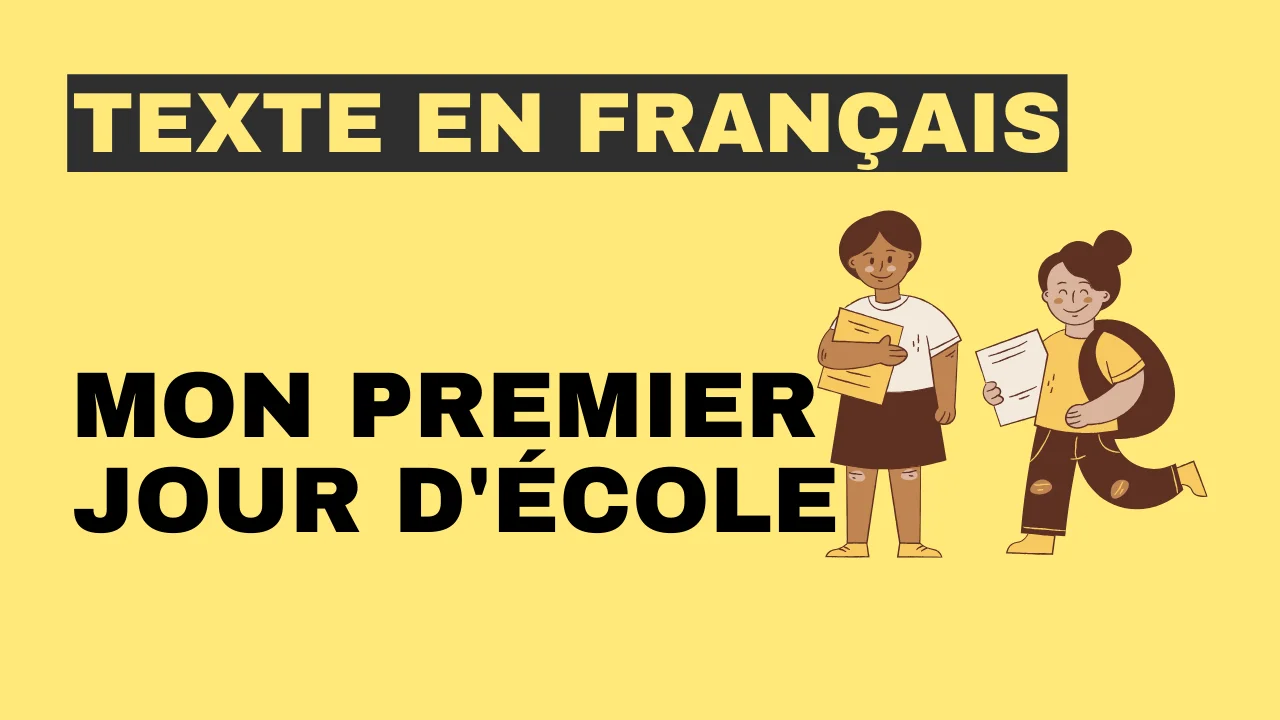
Nous espérons que vous apprécierez cette lecture et que cela vous aidera à progresser dans votre apprentissage de la langue française.
Mon Premier Jour d’École
Je me souviens encore de la première fois où j’ai mis les pieds à l’école. C’était un matin ensoleillé, et j’étais à la fois excité et un peu nerveux.
Ma mère est venue me réveiller tôt le matin. Elle m’a aidé à enfiler ma tenue d’écolier, et j’ai choisi mon sac à dos préféré.
Nous avons pris un petit déjeuner copieux pour avoir de l’énergie pour la journée à venir. J’ai mangé des céréales avec du lait et bu un verre de jus d’orange.
Ensuite, ma mère m’a pris par la main, et nous sommes partis à pied jusqu’à l’école. Sur le chemin, j’ai vu d’autres enfants qui se rendaient aussi à l’école.
Une fois à l’école, j’ai été accueilli par ma gentille enseignante. Elle avait un grand sourire et m’a aidé à trouver ma place dans la classe.
J’ai fait la connaissance de mes nouveaux camarades de classe. Certains d’entre eux étaient aussi un peu timides comme moi, mais nous avons rapidement commencé à jouer ensemble.
Ma première journée d’école a été remplie de découvertes. J’ai appris les chiffres, les lettres, et j’ai écouté des histoires passionnantes.
Pendant la récréation, j’ai couru dans la cour de l’école, j’ai joué à la balançoire, et j’ai fait de nouveaux amis.
À la fin de la journée, ma mère est venue me chercher à l’école. J’étais heureux de la retrouver et de lui raconter tout ce que j’avais fait.
Mon premier jour d’école restera à jamais gravé dans ma mémoire. C’était le début d’une nouvelle aventure passionnante.
Voilà, c’était notre texte en français. Nous espérons que vous l’avez apprécié. La lecture est un excellent moyen d’apprendre le français, alors continuez à explorer notre site pour découvrir plus de textes intéressants pour apprendre le français. Bonne lecture et continuez à apprendre le français avec nous !
Apprendre le français
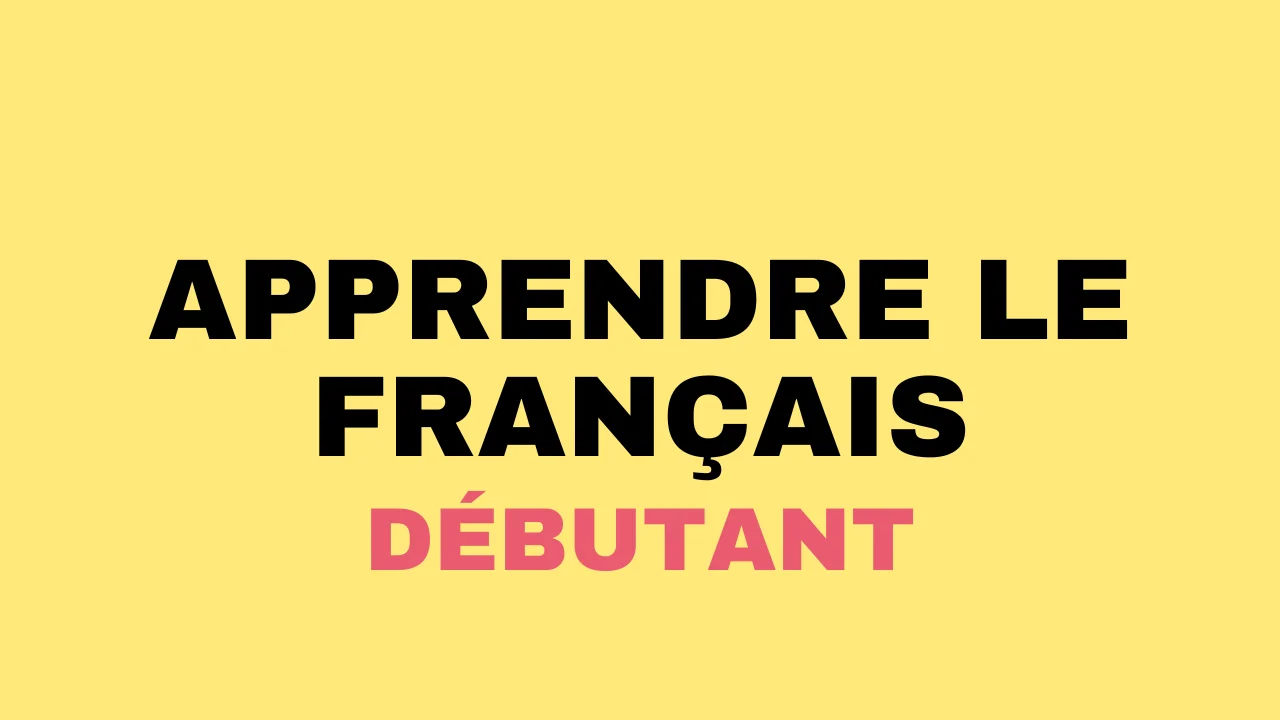
Cours de français débutant
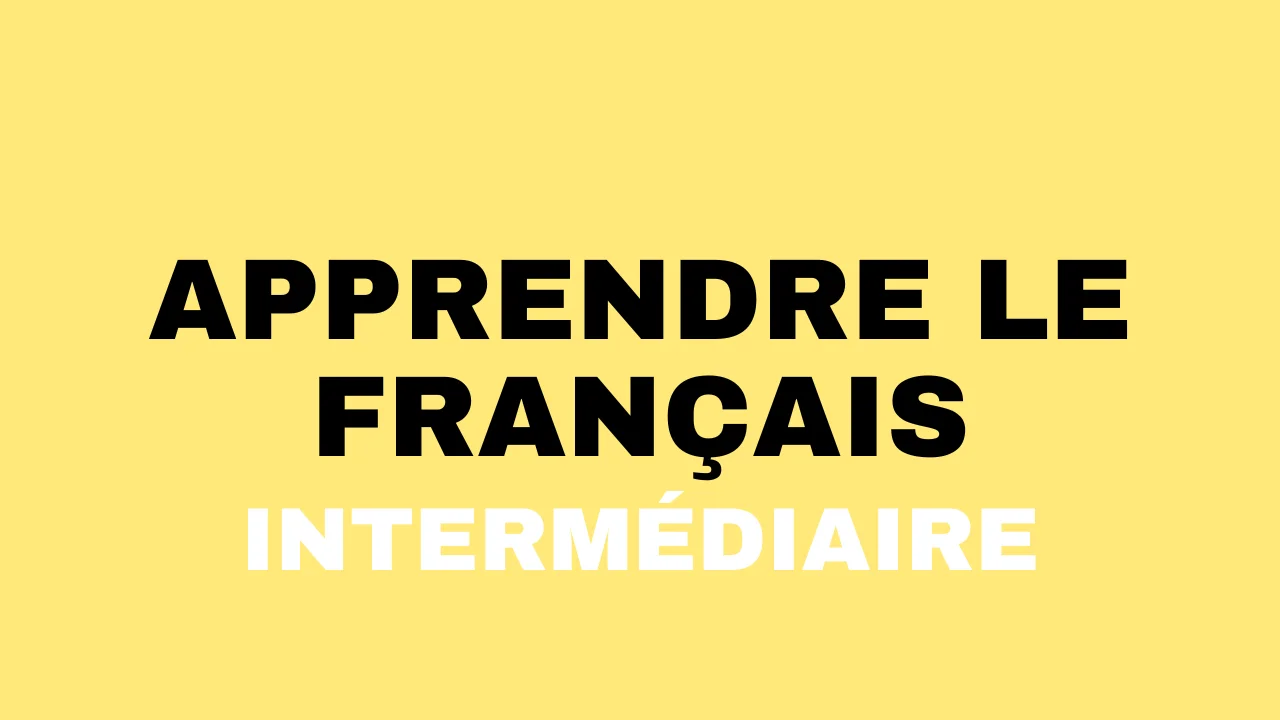
Cours de français intermédiaire
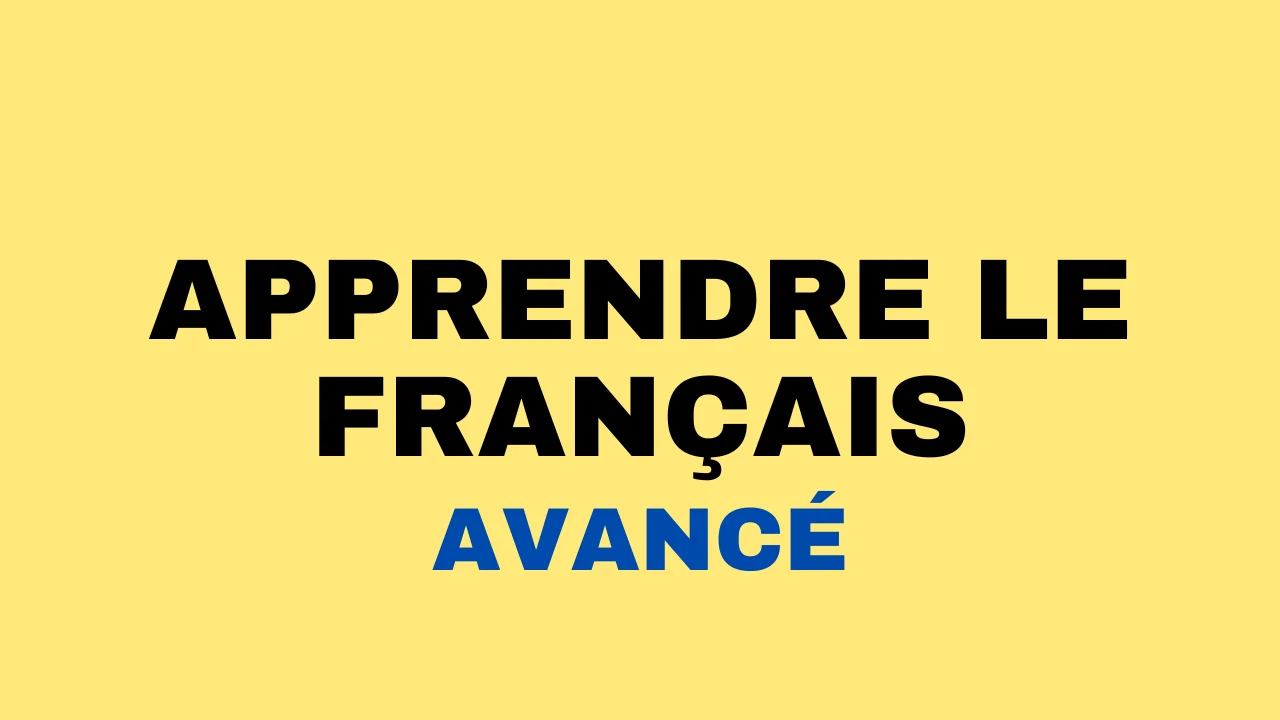
Cours de français avancé
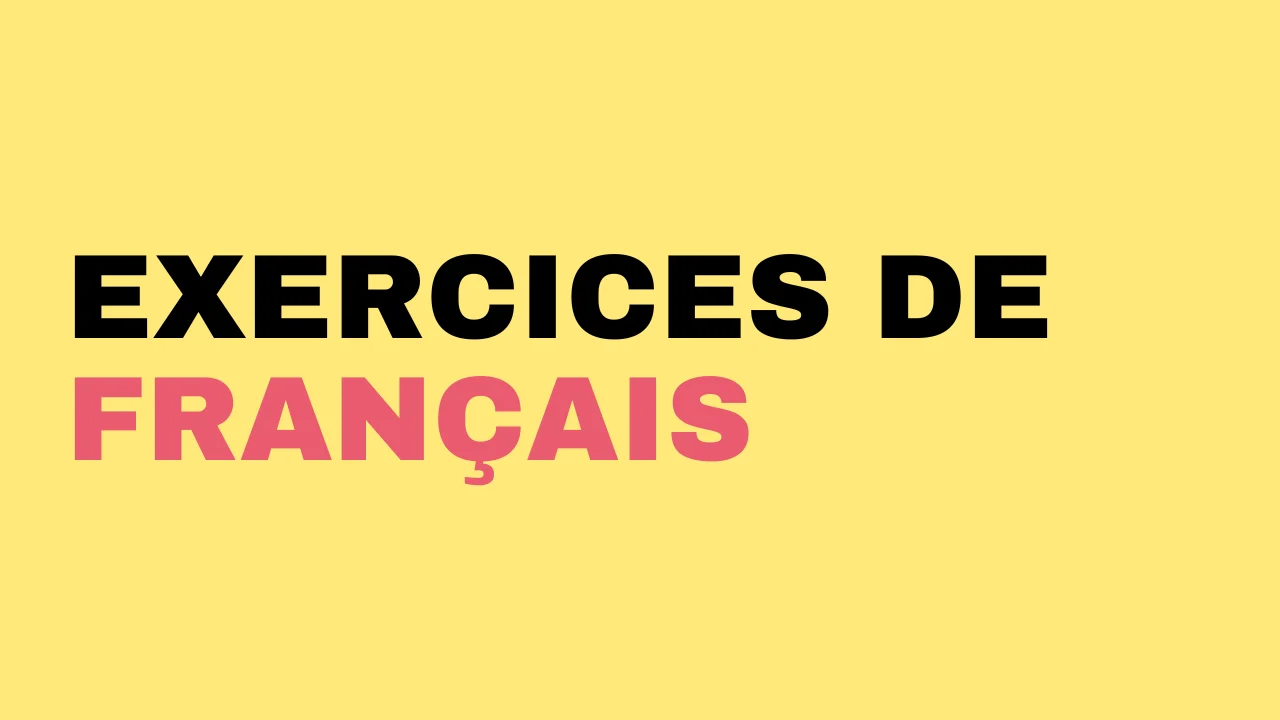
Exercices de français

IMAGES
VIDEO
COMMENTS
Vous êtes en vacances à Nice. Vous envoyez une petite carte postale a un ami à Paris. Vous lui parlez de temps, de vous activités et vous lui donnez votre date de retour. (40 à 50 mots). Sample letter in french about your vacation: Bonjour Jean, Je suis en vacances à Nice pour cinq jours.
les vacances ! Que l'on soit plutôt lézard à se dorer la pilule sur la plage, les vacances sont souvent notre période favorite de l'année, celle que l'on attend avec le plus d'impatience. Pour raconter ses vacances d'été, voici une liste d'expressions et de phrases en français très utiles. raconter ses vacances d'été.
PARLER DE SES VACANCES EN FRANÇAIS. Dans cette vidéo, je vous raconte mes vacances en français. L'objectif est de vous montrer comment je parle de mes vacances pour que vous puissiez vous en inspirer et faire de même. Raconter ses vacances est un excellent exercice pour améliorer son français.
Texte FLE et questions de compréhension, niveau intermédiaire (A2), sur le thème vacances et météo. Pendant des vacances à Paris, la météo est très variable. Bonjour et bienvenue sur podcastfrançaisfacile.com. Je vais vous lire aujourd'hui un texte intitulé « Parler de ses dernières vacances »Je vais lire ce texte trois fois ...
Projets pour les vacances. Elise : "Salut Jordyn !" Jordyn : "Ah, salut Elise !" Elise : "Dis donc, il fait beau en ce moment ! L'été n'est plus très loin." Jordyn : "Oui, avec ce grand soleil, je commence à réfléchir à des projets de vacances. As-tu prévu quelque chose ?" Elise : "En juillet, ma famille et moi irons dans le Sud de la ...
Projets pour les vacances. Elise : "Salut Jordyn !" Jordyn : "Ah, salut Elise !" Elise : "Dis donc, il fait beau en ce moment ! L'été n'est plus très loin." Jordyn : "Oui, avec ce grand soleil, je commence à réfléchir à des projets de vacances. As-tu prévu quelque chose ?" Elise : "En juillet, ma famille et moi irons dans le Sud de la ...
Recounting your holidays in French is an excellent "ice breaker" : in turn, or as part of a two-person dialogue, the pupils share their experience and describe their holiday destination. Travel, sport, leisure, geography: so many subjects that allow students and teachers to find common points and perfect topics of conversation to facilitate ...
Learn the French vacation vocabulary + French to describe your holidays in France + Vacation dates and zones in France + tips form a French native. French vacation words, common phrases & questions...
Je vous explique : l'histoire des congés d'été. les lieux préférés fréquentés par les Français: les régions visitées et les modes d'hébergement. Comment utiliser ce podcast pour améliorer votre français. Dans tous mes épisodes, j'utilise de nombreuses expressions idiomatiques et du vocabulaire avancé. Tout d'abord, écoutez.
An interactive French Reading exercise about La fin des vacances with clickable translations and French quizzes. Enjoy this podcast interview about the end of holiday [US: vacation] while practising your French reading and listening skills.
. Télécharger. Texte + Quiz + Vocabulaire. ≣ Texte. ⇄ Traduction. Vocabulaire. Pour les vacances de février, ma femme et moi avons décidé de nous offrir un séjour d'une semaine en Bretagne. Nous allons y aller avec toute la famille : nous deux, nos trois enfants et le chien.
Mes vacances de l'année dernière - last years holiday. Subject: French. Age range: 14-16. Resource type: Lesson (complete) File previews. doc, 26 KB. Model essay on holidays in the past tense. Could be used as a translation exercise. Find the French for.
French past tense essay - Mes vacances. by mspinkdaisy (student) GCSE Modern Foreign Languages. ☺ Six past tense paragraphs combined ☺ Pendant les vacances d'été je suis allé (e) au Liban parce qu'il fait trop chaud ici au Koweït. J'ai passé du temps chez mes grand-parents à Beyrouth.
Les vacances d'été. Les vacances d'été en France durent 6 semaines et ont habituellement lieu entre Juillet et Septembre. En France, le début des vacances est souligné par les soldes d'été. Il faut savoir que les étudiants comme les travailleurs attendent ces vacances avec impatiente.
These 50+ French vacation vocabulary words and phrases are useful to know when you're traveling. Learn important terms for vacation plans, accommodations, transportation, dining out and more. This guide comes with audio pronunciation and plenty of example sentences, so you can start using the vocabulary right away!
Maintenant on va utiliser tout ces mots pour raconter nos vacances au passé composé. J'ai préparé une vidéo pour vous aider et pour vous entraîner pour la production orale. Vous êtes prêts? Maintenant, c'est à vous! Regardez la vidéo, faites les exercices et racontez-moi vos vacances!
Travel. One of the most exciting things to do in life is take a trip. Here you'll find a complete French conversation lesson with questions all about different trips you've taken. Click here for the downloadable PDF and contact me to try this lesson via Skype! As‐tu déjà voyagé dans ton pays de naissance?
By Live-French.net November 26, 2017. Last updated on June 25th, 2023 at 02:52 pm. The writing part (or production écrite) corresponds to 25% of the DELF B1 total mark. You have 45 min to complete an assignment of about 180 words around general themes (essay, letter, article, etc.). You will be able to get practical information about where you ...
Les vacances à la mer de Lola. Written by Qualified French Expert Aurélie Drouard HKH, Licence d'anglais LLCE. In: Reading B1, Monuments, Tourism & Vacations, Family & Relationships, Listening or Seeing B1. Discussion of this reading exercise: 24. Lovely Lola reminisces about her childhood seaside holidays [US:vacations] in the south of France.
L'année prochaine, pendant les vacances d'été, je vais en France et je vais rester dans un hôtel au centre de Paris. J'irai avec mon frère, mes parents et mes grands-parents. Mon frère, mes grands-parents et moi voyageons en train, l'Eurostar, car il est très rapide et n'est pas trop cher.
Answer: Essay. Explanation: Cette année, les vacances d'été ont été vraiment amusantes et passionnantes. J'étais allé chez ma grand-mère, où j'avais essayé différentes activités d'apprentissage et exploré davantage la nature.
Aujourd'hui, nous vous proposons un texte en français « Mon premier jour d'école » qui vous permettra de pratiquer votre français tout en découvrant une histoire intéressante. Nous espérons que vous apprécierez cette lecture et que cela vous aidera à progresser dans votre apprentissage de la langue française.
Les dernières vacances, ma famille a décidé de faire un voyage de 5 à 7 jours au Moyen-Orient, puis de rentrer et les préparatifs se poursuivaient. Nous avions des parents et des amis qui nous invitaient depuis un certain temps et nous avons décidé de le faire.